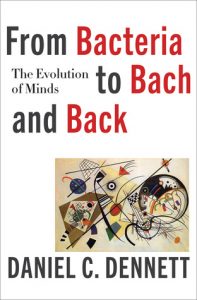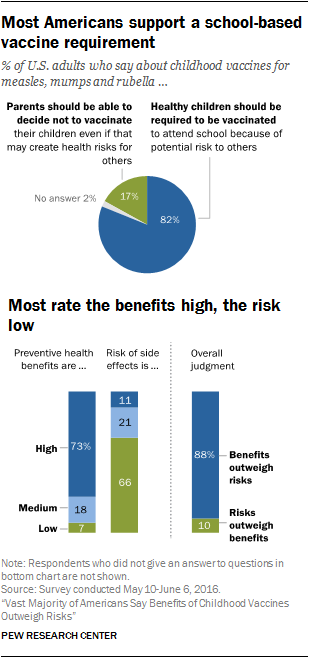Feb
10
2017
 H. Sterling Burnett, writing for the Heartland Institute blog, wrote a revealing post titled: Energy Restrictions, Not Climate Change, Put Civilizations at Risk. In my opinion it is a classic example of misleading propaganda, worthy of deconstruction as a case study.
H. Sterling Burnett, writing for the Heartland Institute blog, wrote a revealing post titled: Energy Restrictions, Not Climate Change, Put Civilizations at Risk. In my opinion it is a classic example of misleading propaganda, worthy of deconstruction as a case study.
What Is Propaganda?
I always endeavor to be as clear, thorough, and fair in my writing as possible. I am not saying I always succeed, but that is my goal. I have been influenced by my scientific background where clarity and accuracy rises to the level of obsession in the technical literature. It’s not possible to achieve that level in a non-technical blog, but it is a good ideal.
Propaganda is the opposite of clear, thorough, and fair. The purpose of propaganda is to persuade the reader to an ideological or political opinion, or to impugn or cast doubt on other people or other ideas. Being persuasive in an of itself does not make communication propaganda. In order to rise to that level there has to be a willful distortion of facts, a selective use of arguments and information, and the marshaling of any points that suit your ends, regardless of how fair they are.
Propaganda, like pseudoscience, exists on a spectrum. This further means that there is a demarcation problem – there isn’t going to be a bright line beyond which communication is clearly propaganda.
Burnett’s article shows multiple dramatic examples of what constitutes propaganda, and so should serve as an instructive example. This is not surprising since The Heartland Institute is an ideological think tank. They are not a scientific organization. Continue Reading »
Feb
09
2017
 Full disclosure – I have been a Patriots fan since in the 1980s. I suffered through a couple long decades of rooting for a mediocre team, including the worst (at the time) Super Bowl defeat at the hands of the Bears. Then along came Belichick and Brady, and it has been a wild ride as a fan.
Full disclosure – I have been a Patriots fan since in the 1980s. I suffered through a couple long decades of rooting for a mediocre team, including the worst (at the time) Super Bowl defeat at the hands of the Bears. Then along came Belichick and Brady, and it has been a wild ride as a fan.
Super Bowl LI was perhaps the pinnacle – the Patriots came back from a 25 point deficit to tie the game and then win in sudden-death overtime. I feel genuinely bad for Falcons fans, but perhaps worse for those who stopped watching the game in the third quarter because they thought it was over. Those who stayed through to the end were rewarded with historically epic football.
(As an aside, I am a fan simply because it is fun to have a team to root for. Don’t read too much into it.)
What is interesting, from a critical thinking perspective, about the game is the way in which we construct narratives to explain random events, or at least events that have an element of randomness or “luck” involved. At half-time the Falcons were up 21-3 and the discussion among the commentators was all about how well the Falcons were playing and everything the Patriots were doing wrong. The Falcons had “momentum” and the Patriots had to figure out a way to steal this elusive “momentum” back.
Continue Reading »
Feb
07
2017
 Right now there are no genetically modified (GM) cultivars of wheat that are approved and on the market, so essentially there is no GM wheat. Wheat is an important staple crop responsible for about 21% of total calories consumed by humans in the world. Improving net yields of wheat could therefore have important impacts on our food production.
Right now there are no genetically modified (GM) cultivars of wheat that are approved and on the market, so essentially there is no GM wheat. Wheat is an important staple crop responsible for about 21% of total calories consumed by humans in the world. Improving net yields of wheat could therefore have important impacts on our food production.
GM Wheat
Over the last century agricultural experts have used conventional breeding, including hybrids, to increase yields of major crops. Apparently conventional breeding is running up against diminishing returns, and some believe we are at or approaching the limit of wheat yield with conventional techniques.
However, improving the efficiency of photosynthesis, the process by which plants turn sunlight into biomass, is an unexploited strategy. Researchers are now applying for field trials of a GM variety of wheat that incorporates genes from a closely related grass, the stiff brome.
Professor Christine Raines, Head of the School of Biological Sciences at the University of Essex and principal investigator for this research project, described the current modification:
“In this project we have genetically modified wheat plants to increase the efficiency of the conversion of energy from sunlight into biomass. We have shown that these plants carry out photosynthesis more efficiently in glasshouse conditions. One of the steps in photosynthesis shown to limit this process is carried out by the enzyme. sedoheptulose-1,7-biphosphatase (SBPase). We have engineered GM wheat plants to produce increased levels of SBPase by introducing an SPBase gene from Brachypodium distachyon (common name stiff brome), a plant species related to wheat and used as a model in laboratory experiments.”
Continue Reading »
Feb
06
2017
 In Daniel Dennett’s latest book,From Bacteria to Bach and Back: The Evolution of Minds, Dennett explores a number of issues surrounding consciousness. I have not yet completed the book and so may come back to it again, but wanted to discuss one topic that Dennett covers – why are we conscious in the first place?
In Daniel Dennett’s latest book,From Bacteria to Bach and Back: The Evolution of Minds, Dennett explores a number of issues surrounding consciousness. I have not yet completed the book and so may come back to it again, but wanted to discuss one topic that Dennett covers – why are we conscious in the first place?
Dennett makes a distinction between competence and comprehension. Competence is the ability to perform some task, while comprehension is understanding the task and the process. The former is unconscious, while the latter is conscious.
This touches on Chalmers’ “P-zombie” problem – if we can imagine an organism that can do everything a human does without experiencing its own existence (a philosophical zombie), then why did consciousness evolve at all? There are several possible solutions to this problem. The first is that humans were “designed” to be conscious by whatever agent made us. This introduces unnecessary elements and contradicts established science, so I think we can set that aside.
The second solution is that consciousness is an epiphenomenon. We don’t need to be conscious, but we evolved consciousness as an evolutionary accident. This may be true, but is unsatisfying as it just side-steps the question of what use is consciousness.
The third solution, which I find compatible with the evidence and compelling, is that consciousness is inherent to the functioning of our brains and brings with it specific advantages.
Continue Reading »
Feb
03
2017
Pew recently published a survey looking at the attitudes of Americans regarding the safety and effectiveness of vaccines. The results are not surprising, but there are some interesting bits in the data.
looking at the attitudes of Americans regarding the safety and effectiveness of vaccines. The results are not surprising, but there are some interesting bits in the data.
The headline main results are that 88% of those surveyed thought that the benefits of vaccines outweigh the risks, while only 10% thought the risks outweigh the benefits. Further, 82% supported mandatory vaccinations for healthy school children.
This is both good and bad news. It means a solid majority of Americans understand that vaccines are safe and effective. However, the minority who doubt the safety of vaccines are enough to cause problems. Also, those numbers are a bit worse when you dig into the data.
Parents of young children, age 0-4, were more negative about vaccines, with only 81% stating that the benefits outweigh the risks, compared to 91% of those with older children and 90% of those with no children. Parents of young children are the ones deciding if they get vaccinated. The reason for this is likely that parents with young children are facing the decision of whether or not to vaccinate and are looking for information online. They are therefore more likely to come across anti-vaccine propaganda. Parents of young children may also be easier to scare than more experienced parents.
These numbers are important because of herd immunity – if enough of the population is vaccinated, then a disease outbreak cannot find enough susceptible hosts to spread and will therefore peter out quickly. This will keep the disease from being endemic, meaning that it is self-sustaining in the population. Continue Reading »
Feb
02
2017
 One of the main themes of this blog is metacognition – thinking about thinking. This is a critically important topic because much of our thinking is subconscious, or it is not explicit. This means we are not aware of exactly how our brains process information and come to certain conclusions or decisions. In fact, we may have false beliefs about how we arrive at our decisions.
One of the main themes of this blog is metacognition – thinking about thinking. This is a critically important topic because much of our thinking is subconscious, or it is not explicit. This means we are not aware of exactly how our brains process information and come to certain conclusions or decisions. In fact, we may have false beliefs about how we arrive at our decisions.
Cognitive psychologists study how people think, and knowledge of this field can help us become more aware of the otherwise unrecognized assumptions or processes in our decision-making.
Take an apparently simple concept such as “normal.” What does it actually mean and how do we use this concept to think about the world? (“Normal” has a specific mathematical definition, as in “normal distribution,” but I am not talking about that here.) A dictionary definition might be, “conforming to a standard; usual, typical, or expected.” This doesn’t quite tell us how we decide what is “normal.”
In medicine use of the term “normal” has fallen out of favor, because it is imprecise, and also because it may contain a moral judgment. We still use it when referring to numbers, such as normal blood pressure, but even then it is not conceptually precise. Normal may be different for different people in different situations. When we are making an effort to be clear in our language we will use terms such as “healthy” or “physiological” (which is distinguished from pathological).
Continue Reading »
 H. Sterling Burnett, writing for the Heartland Institute blog, wrote a revealing post titled: Energy Restrictions, Not Climate Change, Put Civilizations at Risk. In my opinion it is a classic example of misleading propaganda, worthy of deconstruction as a case study.
H. Sterling Burnett, writing for the Heartland Institute blog, wrote a revealing post titled: Energy Restrictions, Not Climate Change, Put Civilizations at Risk. In my opinion it is a classic example of misleading propaganda, worthy of deconstruction as a case study.
 Full disclosure – I have been a Patriots fan since in the 1980s. I suffered through a couple long decades of rooting for a mediocre team, including the worst (at the time) Super Bowl defeat at the hands of the Bears. Then along came Belichick and Brady, and it has been a wild ride as a fan.
Full disclosure – I have been a Patriots fan since in the 1980s. I suffered through a couple long decades of rooting for a mediocre team, including the worst (at the time) Super Bowl defeat at the hands of the Bears. Then along came Belichick and Brady, and it has been a wild ride as a fan. Right now there are no genetically modified (GM) cultivars of wheat that are approved and on the market, so essentially there is no GM wheat. Wheat is an important staple crop responsible for about
Right now there are no genetically modified (GM) cultivars of wheat that are approved and on the market, so essentially there is no GM wheat. Wheat is an important staple crop responsible for about  In Daniel Dennett’s latest book,
In Daniel Dennett’s latest book,
 One of the main themes of this blog is metacognition – thinking about thinking. This is a critically important topic because much of our thinking is subconscious, or it is not explicit. This means we are not aware of exactly how our brains process information and come to certain conclusions or decisions. In fact, we may have false beliefs about how we arrive at our decisions.
One of the main themes of this blog is metacognition – thinking about thinking. This is a critically important topic because much of our thinking is subconscious, or it is not explicit. This means we are not aware of exactly how our brains process information and come to certain conclusions or decisions. In fact, we may have false beliefs about how we arrive at our decisions.




